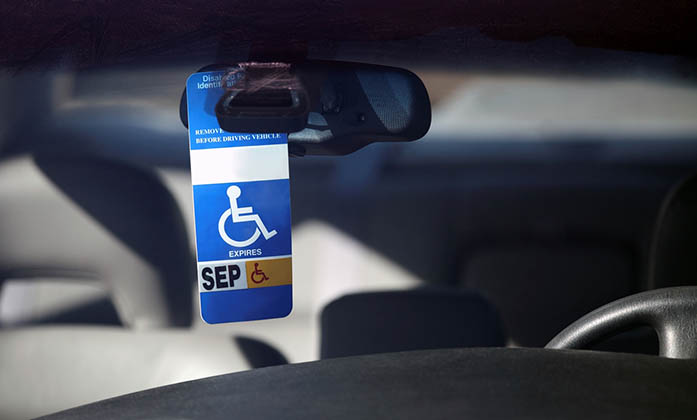By Hannah Soyer
This past May, I worked on an investigative story that was published through IowaWatch and then the Des Moines Register and Cedar Rapids Gazette, among many other Iowa newspapers. This story was about how of all Iowa schools that were reviewed by the Department of Education since 2010, only one of them was compliant with the Americans with Disabilities Act. As a part of the story, I spoke with a high-school student in the West Marshall School District, who, because of his school’s failure to comply with a law that would make the building accessible for him and his wheelchair, had run into many obstacles during his time in the district, including being stuck outside in the rain because the doors did not have push buttons to open them.
On Dec. 4, “60 Minutes” aired a segment on the ADA hosted by Anderson Cooper. In this segment, Cooper described something he called “drive-by lawsuits,” which essentially refers to an ADA complaint filed by someone who is neither disabled nor a costumer of the business. Cooper also spoke with owners of businesses that had been sued, and the general consensus from these businesses it that they don’t think it’s fair for someone who isn’t being directly hurt by their noncompliance to file these lawsuits.
Under this logic, it would follow that the responsibility to make sure things are accessible for all falls on those who are being discriminated against. Unfortunately, this is the reality of the current law. Until the ADA is enforced, many businesses do not have to comply. The most recent example I personally have of this is an apartment complex that I was looking at this past weekend had plans to turn each of its handicap-accessible parking spots (which include a spot for the vehicle and a spot for a ramp or person to get out) into two parking spots. When I told them that not only would I not be able to live there without a handicap-parking spot but also that this was illegal, the answer I got was that they would look into it.
Cooper’s coverage of ADA lawsuits did nothing to expel this idea that the responsibility to fight discrimination falls only on those being discriminated against. In fact, it furthered it. I fail to see what is wrong with non-disabled people reporting instances where something is not compliant with ADA, which is, in fact, a law that is meant to stop discrimination. Keeping society accessible to all is a responsibility that should fall on all of us, just as ridding society from racism or homophobia should be something that all of us work for.
Most upsettingly, Cooper did not interview any people with disabilities who have actually benefited from the ADA, which, I can tell you, is quite a few. Instead, he interviewed one man with a disability who had been taken advantage of by lawyers. While this is definitely something worth covering, it is incredibly one-sided and does not allow the voices of those who are actually the central figures in the story to be listened to.
As a journalist, Cooper had an opportunity to present a well-rounded, factual story on the ADA, a law that is absolutely necessary for Americans with disabilities to participate fully in society by eliminating unnecessary boundaries. I have argued this many times in the past, but I will again: Participating in society and receiving equal opportunities are our rights as American citizens, disabled or not. Average Americans don’t know much about the ADA to begin with, because it doesn’t affect them right now (it will when the become older and need adaptive equipment to move around). And with Cooper’s slanted coverage, more and more Americans have gotten the wrong idea about it.










